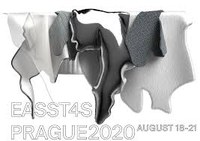Zusammenfassung
- Was Call For Papers — EASST-Panel „Contesting the ‚migration/border control machine‘: entanglements of information and surveillance infrastructures with the making of publics/’non-publics'“
- Wann to (Europe/Berlin / UTC100)
- Wo Prag — Tschechien
- URL https://convention2.allacademic.com/one/ssss/prague20/
- Termin herunterladen iCal Datei herunterladen
Beschreibung
In recent years information and surveillance infrastructures of migration and border control have gained more attention of civic actors, activists and researchers. Work at the intersection of STS, critical migration and border studies scrutinizes the hidden processes of data and information processing and their consequences on citizens and migrants, the seemingly neutrality of technologies or the role of technocratic experts.
But what could or should enable ’non-publics‘, those affected by the infrastructure’s consequences of social sorting, to transform into visible collectives and publics? How are other critical voices part of larger publics and controversies? How do publics emerge, and which issues and concerns gain authority and affect the design and working of surveillance and information infrastructures?
The panel engages with the making of ’non-publics‘, publics and controversies around information and surveillance infrastructures of migration and border control and addresses multiple forms of critique and contestation. It explores the arenas in which controversies unfold, the actors involved and the issues and concerns being articulated. It critically examines which actors‘ voices are in- and excluded, amplified or silenced, as well as the processes and dynamics which enable or restrict public contestation. Furthermore, it reflects upon the ontological politics of research and researchers themselves. How is epistemic authority constructed within publics and beyond when engaging as experts, opinion makers and (expert) activists?
We invite contributions that study emergent publics and their arenas, actors, issues and contestations unfolding around the regulation, implementation and use of surveillance and information infrastructures of migration and border control.

